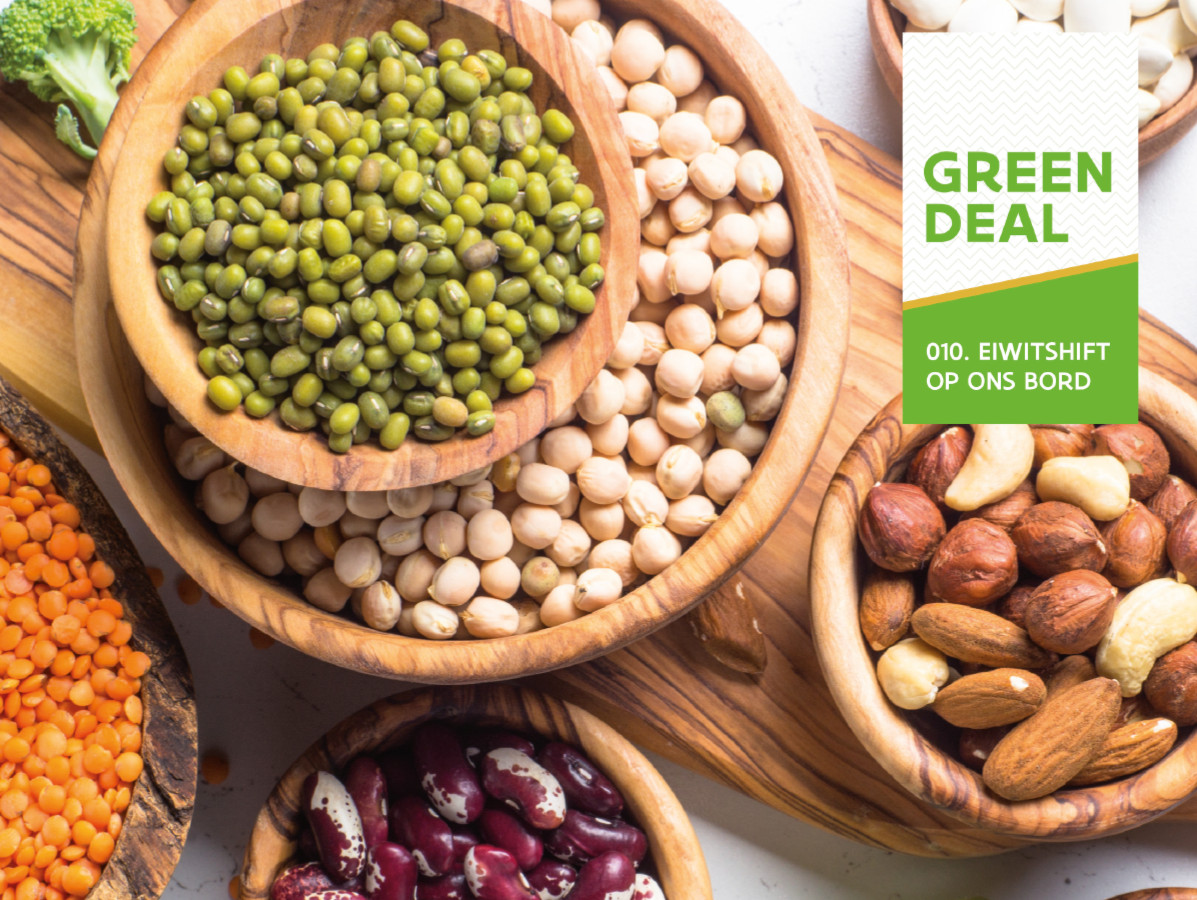
Together with 65 partners, the Flemish Minister for the Environment kicked off the 'Green Deal Protein Shift on our Plate'. The aim is to improve the ratio of animal to vegetable proteins in the dietary pattern.
Our eating pattern consists of approximately 60% animal protein sources as opposed to 40% vegetable protein sources. The Flemish government wants to reverse this ratio by 2030. The Minister states that the so-called 'protein shift' aims to achieve an environmentally responsible and healthy eating pattern. These sustainable food systems are high on the agenda both in Flanders and internationally. The Farm-to-Fork strategy of the European Commission draws attention to it and in the framework of this, the Flemish government wants to develop a strong food policy, the 'Green Deal Protein Shift on our Plate' is in line with this.
The new Green Deal brings together various objectives. "We are working on a lower environmental impact and better health at the same time. In so doing, we are valorising economic opportunities by making full use of the innovation potential present in Flanders", says the minister.
In order to put the objective of the protein shift into practice, insights are brought together on eating habits and routines in Flanders. "We are mapping out the active food routines. On this basis, we can work in a more targeted way towards a protein shift with a positive impact on various domains," explains Kristof Rubens of the Environment Department, initiator and driving force behind this Green Deal.
The Green Deal offers a platform to bring together a diverse set of partners. Chain partners from the agricultural sector, the food processing industry, the retail and catering sector are represented. The Green Deal also brings together partners who play a role in the broader food system: knowledge institutions, research groups, NGOs, professional organisations and (local) authorities.
omgeving.vlaanderen.be
Bron: Vilt
Source: Vilt